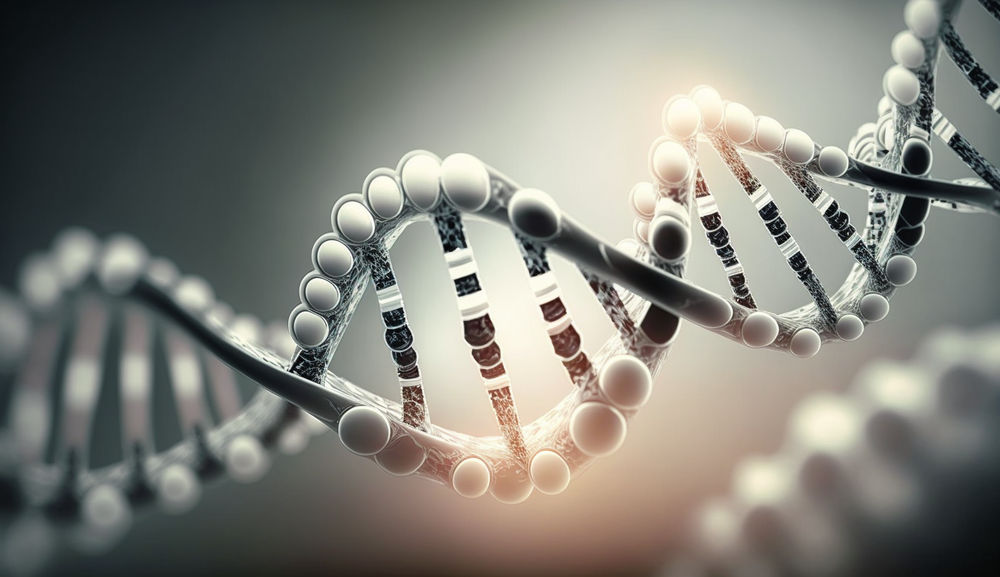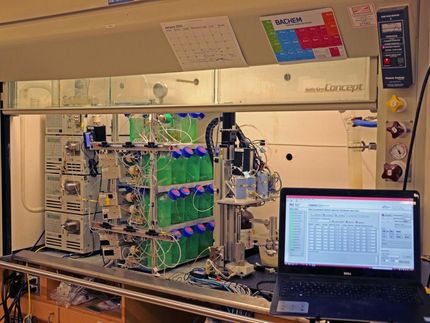Completely Biological, yet Artificial
A new class of synthetic biomaterials made of sugar and peptide building blocks
Advertisement
Biomaterials are increasingly in demand, needed as materials for implants and prostheses, as "transporters" for drugs, to carry DNA into cells for gene therapy, as supports for the growth of tissue transplants, or for modern diagnostics. What type of materials should we rely on? Researchers at the University of California at Irvine have now synthesized a new class of biomaterials made of sugar and peptide building blocks.
Synthetic polymers have a number of advantages over their natural counterparts; they are very versatile, and their composition, structure, and properties are easy to control. They can often be tailored for specific individual applications. At the same time, these polymers must be biocompatible, biodegradable, and physiologically tolerable. One way to achieve this is to make the artificial biomaterials from natural building blocks; a well-known example of this is poly(lactic acid). A number of biomaterials produced in this fashion are already used in some clinical applications. Until now, one disadvantage has been the very limited variability of the structural and functional properties of this type of material.
Researchers led by Zhibin Guan are now working with a variety of natural building blocks and synthesized polymers made of natural sugars and peptides. "Sugars and peptides are simple monomers that are commonly found in nature and do not have to be produced by complicated methods," explains Guan. "What is new about our approach is that we developed an efficient way to link these building blocks in alternating sequence into one chain." This modular approach brings with it the desired versatility, whereas changing the structure of building blocks and their precise order allows for the precise adjustment of desired properties.
An initial series of biomaterials made of the sugar galactose and short peptides that comprise the amino acid lysine may be able to act as gene transporters because the material "wraps" DNA into little packages that are taken up into cells. The biomaterial has also proven to break down easily under physiological conditions and doesn't induce any immunological reactions in rats. Whereas well-known gene transporters such as polylysine, made exclusively of lysine building blocks, are often quite poisonous, the new material has minimal cytotoxic effects at high concentrations. Says Guan, "We are now developing a family of sugar-peptide biomaterials and will test them for various biomedical applications such as tissue engineering and drug/gene delivery."
Original publication: Z. Guan; "Saccharide - Peptide Hybrid Copolymers as Biomaterials"; Angewandte Chemie International Edition 2005.
Other news from the department science
Most read news
More news from our other portals
See the theme worlds for related content
Topic world Gene therapy
Genetic diseases once considered untreatable are now at the center of innovative therapeutic approaches. Research and development of gene therapies in biotech and pharma aim to directly correct or replace defective or missing genes to combat disease at the molecular level. This revolutionary approach promises not only to treat symptoms, but to eliminate the cause of the disease itself.

Topic world Gene therapy
Genetic diseases once considered untreatable are now at the center of innovative therapeutic approaches. Research and development of gene therapies in biotech and pharma aim to directly correct or replace defective or missing genes to combat disease at the molecular level. This revolutionary approach promises not only to treat symptoms, but to eliminate the cause of the disease itself.

























































